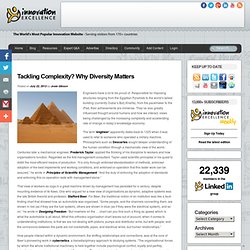

Playing_with_Complexity_V1_2. Widecasting. Someone suggested widecasting as an alternative to sidecasting yesterday so I am trying it out in the title here.

Not sure myself 'side' has a wicked element to it that 'wide' does not provide but nothing ventured nothing gained as they say. Yesterday I referenced Dreborg's 1996 article on backcasting and its use of a table to contrast forecasting with backcasting. I found that useful so I have replicated it below, but with an additional column for sidecasting. My plan is to summarise that table today, then after a break I will move onto to future backwards as a technique along with others. In the advanced courses in Melbourne and Auckland I am going to be teaching some of the new material on coherence and consensus as well providing a flow chart of these various methods so there is a short term opportunity for people interested in taking future backwards (easily one of our most popular methods) to a new level.
The Dark Art of Uncertainty. Engineers hate uncertainty.

(More precisely, it scares us to death.) And our role in the company is to snuff it out at every turn, or so we think. To shield ourselves from uncertainty, we take refuge in our analyses. We create intricate computer wizardry to calm our soles. We tell ourselves our analytic powers can stand toe-to-toe with uncertainty. Our best feint is to kill uncertainty before it festers. Insidiously, we conjure premonitions of mythical problems and predict off-axis maladies. But our unnatural bias against uncertainty is misplaced. When the engineering warlocks start their magic, ask them to be specific about their premonitions. Uncertainty is not bad. Uncertainty, Uncertainty, Uncertainty. image credit: wikipedia. Systemic Perspective Series. Tackling Complexity? Why Diversity Matters. Engineers have a lot to be proud of.

Responsible for imposing structures ranging from the Egyptian Pyramids to the world’s tallest building (currently Dubai’s Burj Khalifa), from the pacemaker to the iPad, their achievements are immense. They’ve also greatly influenced thought around humans and how we interact, views being challenged by the increasing complexity and accelerating rate of change in today’s knowledge economy. That view of workers as cogs in a great machine driven by management has persisted for a century, despite mounting evidence of its flaws. One who argued for a new view of organisations as dynamic, adaptive systems was the late British theorist and professor, Stafford Beer.
For Beer, the traditional notion of an institution was like a fault-finding chart that showed how an automobile was organised. Diversity – of experience, thinking, personalities – is now regarded as a critical element in navigating organisations through complex times. Understanding Complex Systems - AHC - Whole Systems Healing, University of Minnesota. We live in a world of complex systems.

Organisms, ecosystems, families, countries, and even the earth itself are all complex systems. Therefore, it is useful to develop a systems view of the world in order to see it accurately. This means seeing that everything exists within a context—everything is in relationship to the other parts of a system and to the system as a whole. Knowing more about relationships within a system and the dynamics of those relationships allows us to make better decisions. A systems view allows us to complement the more common reductionist scientific paradigm, which focuses on one thing at a time, to the exclusion of everything else. What Is a Complex System? A complex system is characterized by its: Parts Interconnections between the parts Functions or purposes Interactions between parts produce behaviors that are driven by the function or purpose of the system. An Example Your body is a prime example of a complex system. Why Systems Thinking Is Useful Other Examples.